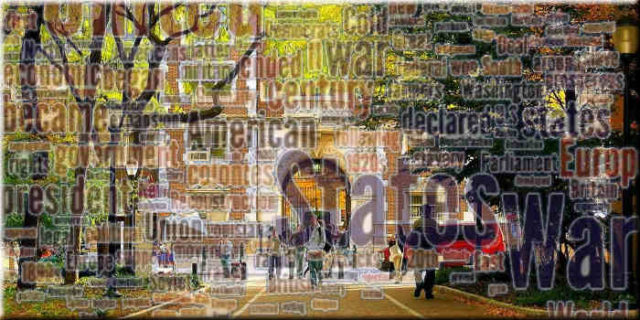During the War Between the States, for example, trigger warnings had an entirely different meaning
 For years, we have watched American history disappear in academe. It turns out that we’re not the only ones who have noticed.
For years, we have watched American history disappear in academe. It turns out that we’re not the only ones who have noticed.
“I think in some ways I knew more American history when I finished grade school than many college students know today,” best-selling historian David McCullough said in an interview with The Wall Street Journal. “And that’s not their fault—that’s our fault.”
Indeed, when we meet college students, we find that they are curious about their history. Unfortunately, there are not too many institutions of higher learning they can go to in order to find it. Outside of university gates, McCullough’s books are a good place to look.
And, arguably, now is a good time to brush up on it. “It’s an antidote to a lot of unfortunately human trends like self-importance and self-pity,” McCullough avers. In nearly a half a century, McCullough has published nearly a dozen histories that span America’s life span.
McCullough points out that in the Civil War, the U. S. lost 2 percent of its population. The flu pandemic of 1918 took half a million American lives.
Surely there are not many micro-agressions that can compete with that level of carnage. During the War Between the States, for example, trigger warnings had an entirely different meaning.
Written by Malcolm Kline and published on Canada Free Press ~ April 21, 2017.
 FAIR USE NOTICE: This site contains copyrighted material the use of which has not always been specifically authorized by the copyright owner. We are making such material available in our efforts to advance understanding of environmental, political, human rights, economic, democracy, scientific, and social justice issues, etc. We believe this constitutes a ‘fair use’ of any such copyrighted material as provided for in section 107 of the US Copyright Law. In accordance with Title 17 U. S. C. Section 107, the material on this site is distributed without profit to those who have expressed a prior interest in receiving the included information for research and educational purposes. For more information go to: http://www.law.cornell.edu/uscode/17/107.shtml
FAIR USE NOTICE: This site contains copyrighted material the use of which has not always been specifically authorized by the copyright owner. We are making such material available in our efforts to advance understanding of environmental, political, human rights, economic, democracy, scientific, and social justice issues, etc. We believe this constitutes a ‘fair use’ of any such copyrighted material as provided for in section 107 of the US Copyright Law. In accordance with Title 17 U. S. C. Section 107, the material on this site is distributed without profit to those who have expressed a prior interest in receiving the included information for research and educational purposes. For more information go to: http://www.law.cornell.edu/uscode/17/107.shtml
